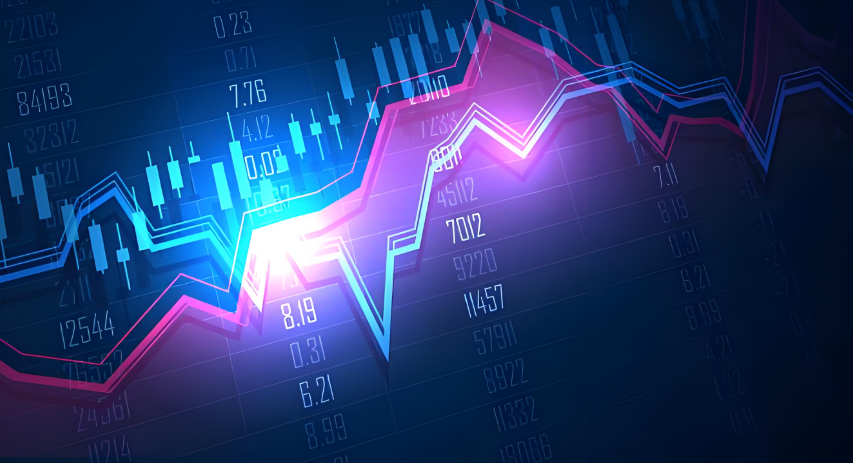In the fast-paced world of technology and finance, few companies have managed to capture the market's attention quite like NVIDIA has recently. On a Tuesday that brightened spirits in the investment community, NVIDIA's stock price saw an impressive surge of nearly 9%. This remarkable comeback not only helped reclaim the substantial losses experienced during Monday's downturn but also reignited strong investor confidence in the AI powerhouse. NVIDIA's robust rebound served as a much-needed jolt to the wider tech sector, lifting spirits across the board. As a direct consequence of NVIDIA's performance, the S&P 500 index rose by 0.92%, while the tech-heavy Nasdaq soared even higher with a 2.03% increase. Enthusiastic investors are now eagerly awaiting upcoming earnings reports from major technology players such as Microsoft and Meta, alongside pivotal decisions from the Federal Reserve. These forthcoming announcements are expected to act as crucial navigational tools, guiding the market's trajectory in the near future.
However, amidst this wave of optimism in the tech sector, challenges remain palpable. Companies like AMD and Broadcom appear to be struggling to keep up with the vigorous pace set by NVIDIA, highlighting a stark internal divide within the technology market. This dissimilarity in performance reflects varying degrees of success in technological innovation, market competition, and product strategies. Meanwhile, in a surprising twist, stocks linked to nuclear power, such as Oklo and energy company Vistra, experienced notable gains, demonstrating a growing appetite for investments in power infrastructure. The surging demand for electricity, powered by the rapid advancements in AI, has turned power infrastructure into a newly emerging focus for investors.

NVIDIA's latest product launch, the RTX 5090 graphics card, has sparked an unprecedented buying frenzy among consumers. Across various retail outlets, eager gamers formed lines overnight, eager to secure their purchase of this highly sought-after technology. Retailers issued warnings that stock shortages could persist for as long as three months, despite assurances of daily restocking efforts. The electrifying sales scene not only underscores the pressing demand for high-performance graphics cards but also suggests the vast potential within the AI-related hardware market.
As shifts in the energy sector unfold, major players such as Chevron and GE Vernova are collaborating to establish natural gas power plants. Their ambitious plan is to provide 4 gigawatts of power by 2027, all of which will be directed to AI data centers. This initiative signals a strategic entry by energy giants into the competitive realm of computing infrastructure—a space where the burgeoning AI industry is becoming increasingly reliant on robust power supplies. The energy sector's deepening integration with technology has become crucial, as companies race to establish a foothold in this high-stakes market.
On another front, the pharmaceutical sector is witnessing significant developments as well. Novo Nordisk has received FDA approval for its diabetes medication, Ozempic, to be utilized in treating chronic kidney disease. This breakthrough has generated a wave of optimism about Novo Nordisk's future prospects, reflected in its post-market stock surge. This recognition not only validates the company's research capabilities but also opens new avenues for the treatment landscape in diabetes and its associated complications.
However, the consumer sector reveals a more complex narrative. Starbucks reported earnings that exceeded expectations, yet same-store sales experienced a decline for four consecutive months, raising alarms about a softening in consumer demand. The shifting preferences of consumers concerning everyday products, including coffee, suggest that Starbucks may need to reassess its market strategies to navigate these challenges effectively. Contrastingly, luxury goods behemoth LVMH has reported a surprising 1% increase in quarterly sales. The CEO's assertion that the industry's winter has passed, alongside maintaining the annual dividend at a hearty 13 euros per share, highlights the resilience and allure of the high-end luxury market, even amid broader consumer market fluctuations.
Despite the appearances of prosperity across these markets, underlying risks lurk beneath the surface. Cohen, a hedge fund mogul, has sounded the alarm about a potential bubble in AI investments, cautioning that many enthusiastic investors seem unaware of the logical foundations of their positions. This commentary serves as an essential reminder for market participants to approach the current climate with reason and caution; the pervasive enthusiasm surrounding AI investment might lead to significant risks for those who blindly follow trends.
In the context of global financial dynamics, HSBC has opted to scale back its investment banking operations in Europe and North America, redirecting its focus towards Asia to navigate the fiercely competitive terrain. This strategic pivot reflects the evolving landscape of global finance, highlighting the varying opportunities and challenges posed by different regions. Meanwhile, Boeing's collaboration with Elon Musk aims to expedite the delivery of the new "Air Force One." However, doubts linger as to whether this partnership can rectify a staggering $2 billion cost overrun, raising broader concerns regarding balancing costs and benefits in commercial collaborations—a perennial issue for businesses.
Finally, Meta's Reality Labs division has seen a commendable 40% annual sales increase, yet it concurrently grapples with a staggering $50 billion in losses. Despite this financial strain, Meta remains committed to its ambitious bet on the metaverse. This situation underscores a delicate balancing act among industry giants as they navigate uncharted territories, where the metaverse, while brimming with potential, is equally fraught with uncertainties that could influence its development trajectory going forward.